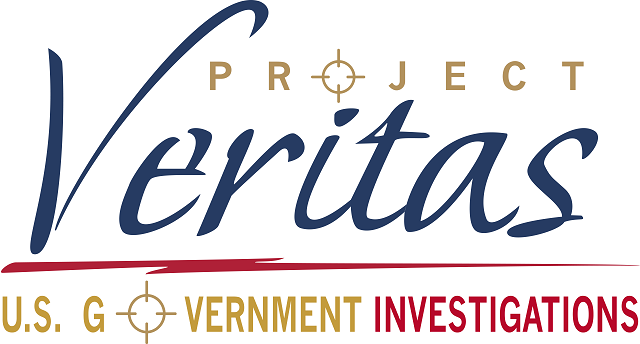Jay Littlewolf, a 54-year-old man, said inadequate healthcare at the government clinic compounded his problems with a diabetic ulcer on his right foot. He said that at one point he was told the remedy was to cut off his toes. Instead, he sought private medical treatment in Billings, Montana. “I don’t like those comments when the podiatrist says he just wants to cut your toes off,” Littlewolf said. “I know there are alternatives. Common sense says that.” To date, Jay has spent $3,000 out of pocket and expects his total bill to exceed $20,000. He wants to be reimbursed—and pay the balance of the bill—but the government agency has refused.
“We are trained and born not to challenge the system,” he said. “I’m not trying to challenge the system. I just want my bills paid. I wanted to save my toes, my foot, my leg, my life. All I want to do is mow my darn lawn.”
Littlewolf’s story is reminiscent of the stories of neglect and incompetency at the U.S. Department of Veterans Affairs (VA), the agency charged with caring for American veterans. Last April, news broke that the VA had serious problems. They came to light in its Phoenix facility, where more than 40 veterans died while waiting for care. An internal audit released June 9, 2014, revealed that more than 120,000 veterans nationwide were left waiting or never got care and that pressures were placed on schedulers to use unofficial lists or engage in inappropriate practices to make waiting times appear more favorable. On June 11, 2014, the Federal Bureau of Investigation opened a criminal investigation of the VA.
Littlewolf, however, isn’t a veteran, and he was not dealing with the VA. Jay is a Native American and a member of the Northern Cheyenne reservation in Montana. He’s talking about the Indian Health Service (IHS), another federal government-operated healthcare system. When the scandal broke about the VA, the media, pundits, and politicians quickly concluded that the remedy for the VA’s ills was reform: more funding, regulation, and accountability. But the occurrence of the same problems at the IHS suggests that these sorts of problems may be endemic to government-run systems. Unfortunately, few are stepping up to recommend a more permanent fix than to enact reforms to the existing systems. What is needed is the privatization of healthcare services for those who suffer under government-controlled programs.
The IHS is familiar to me, as my grandfather was an IHS physician in Arizona. There are 22 tribes in my home state, and growing up there, I saw the issues facing Native Americans up close. The IHS has problems with long waits, inferior care, rationing, and lack of access—just as with the VA and with nationalized healthcare systems abroad. And, like the VA, when healthcare is under government control, it becomes inefficient and ineffective. Just ask Littlewolf.
In 2004, a report of the U.S. Commission on Civil Rights unsurprisingly blamed the substandard care in the IHS on the usual culprits: lack of funding, hiring the wrong people, retention and recruiting of qualified healthcare providers, and maintenance of aging facilities. As usual, the report didn’t point to the real problem: the program itself.
As with all government programs, inevitably most of the funding goes to pay bureaucrats and administrators, leaving little money for medical staff salaries and treatment. Low salaries contribute to unfilled vacancies, poor retention, and low morale among staff, causing waiting lists and inferior treatment for patients. The IHS has job vacancy rates for healthcare professionals ranging from 12 percent to 32 percent.
Bureaucrats cover up their mistakes with phony documents, like those found in the VA scandal, showing that patients are being promptly treated. Ultimately, supporters of government control lament that if only the right people could be found to run the program, everything would be fine.
In order to justify their salaries, government administrators promulgate endless regulations, bogging down the treatment process with red tape. Additionally, the IHS has a bloated bureaucracy, with over 14,000 employees, including eight assistant surgeon generals, 439 “Director Grade” bureaucrats, and 601 “Senior Grade” bureaucrats. Yet, in 2005, per capita federal spending on patients by the IHS was only $2,130—half the amount spent on federal prisoners’ care.
In a move in the right direction, in 2008, U.S. Senator Tom Coburn (R-OK), introduced an amendment to the Indian Health Care Improvement Act that would allow tribal members to choose from various healthcare coverage options, including the ability to purchase private health insurance. According to Senator Coburn, the IHS currently rations services on the basis of whether a particular service will save a “life or limb.” Unfortunately, but not surprisingly, Coburn’s amendment was voted down, 28 to 67.
While Coburn’s attempt at reform was laudable—and would have, at a minimum, provided an option for Native Americans seeking better health care—it didn’t really address the root of the problem. The only lasting solution that would ensure improvements in care and health outcomes would be the privatization of services to Native American tribes. I’m not confident that such a change is likely in the near future—for the IHS or for the VA. And, unfortunately, the problems that have plagued the VA and the IHS are harbingers of a future under our increasingly socialized healthcare system.
Terree P. Summer is an economist and author specializing in healthcare and the federal budget. She is the author of What Has Government Done to Our Health Care? published by the Cato Institute (1992).
EDITORS NOTE: The featured image is courtesy of FEE and Shutterstock.
 Project Veritas caught on hidden camera, Deputy Veterans Administration Chief of Patient Services (for the entire VA) Maureen McCarthy, MD, said many of our military veterans “have drug problems, some of which are caused by us and our prescribing.”
Project Veritas caught on hidden camera, Deputy Veterans Administration Chief of Patient Services (for the entire VA) Maureen McCarthy, MD, said many of our military veterans “have drug problems, some of which are caused by us and our prescribing.”




